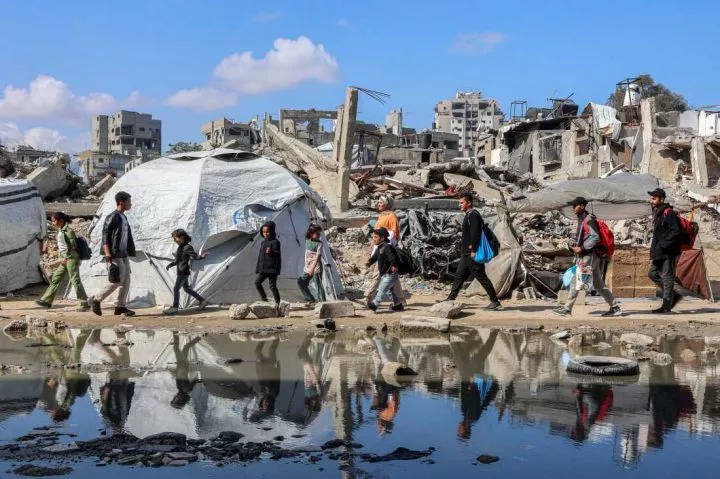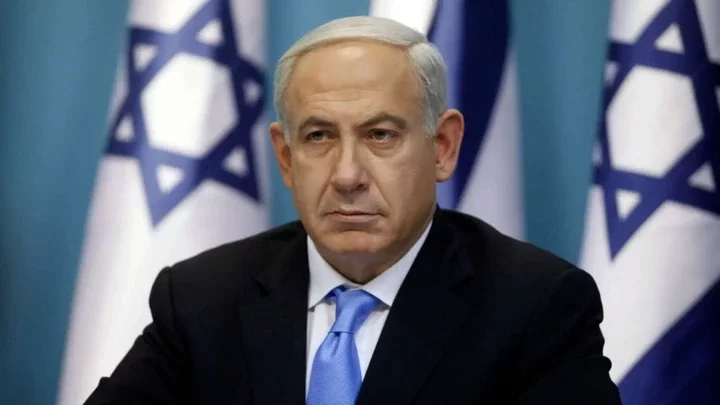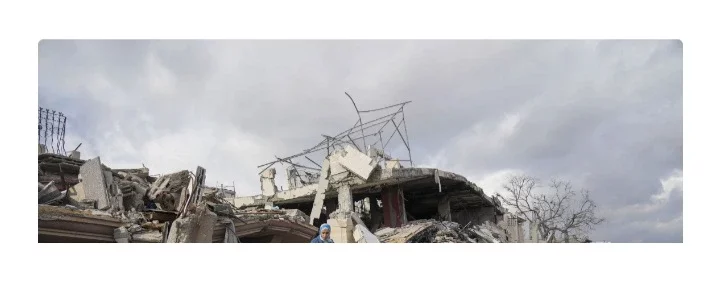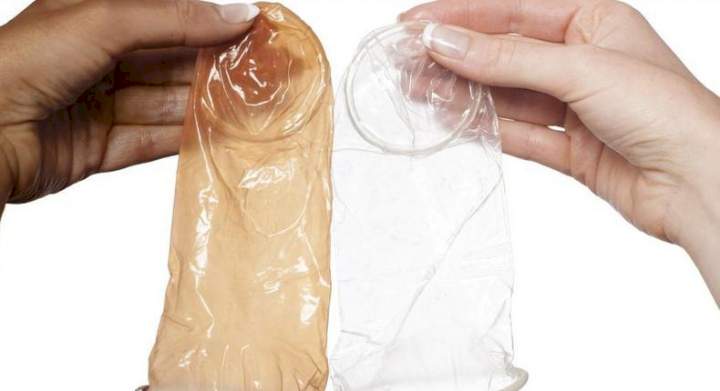
Gaza War: Nigeria, other Israel's crude oil, fuel suppliers risk war crimes probe - Report
In a historic decision delivered in January 2024, the International Court of Justice (ICJ) ordered Israel to take actions to ensure its forces do not commit acts of genocide in Gaza.
Nigeria has been identified as one of the countries standing the risk of facing war crimes probes for supplying crude oil and refined fuels to Israel amid the ongoing Gaza war.
The Guardian reported that legal experts warned that Nigeria and the other countries, which are signatories to the Genocide Convention and Geneva Conventions, are contravening the 26 January landmark ruling of the International Court of Justice (ICJ) regarding Israel's military operations in Gaza.
The ruling ordered Israel to prevent genocidal acts in Gaza and reminded state parties to the genocide convention of their "common interest to ensure the prevention, suppression and punishment of genocide".
After the ICJ ruling, Israeli tanks, fighter jets, military vehicles and bulldozers continue to bombard Gaza and raze Palestinian homes in the occupied West Bank using shipments from foreign countries to power them, The Guardian reported.
The newspaper referenced an investigative research which was commissioned by Oil Change International (OCI), a global nonprofit, showing that some countries, including Nigeria, continued to supply crude oil and fuels to Israel to fuel its bombardments and further destruction of Gaza after the ICJ ruling.
Energy supplies
According to the news platform, the research analysed shipping logs, satellite images and other open-source industry data. It tracked 65 crude oil and fuel shipments to Israel between 21 October last year and 12 July.
It identifies Azerbaijan, Kazakhstan, Gabon, Nigeria, Brazil and recently, Republic of the Congo and Italy as the major suppliers of crude oil to Israel. According to the research, the countries have supplied 4.1 million tons of crude oil to Israel, with almost half of the supply coming after the January ruling of the ICJ.
The research also estimated two-thirds of crude came from investor-owned and private oil companies.
It also found that the United States has supplied jet fuel, diesel and other refined petroleum products to Israel before and after the ICJ ruling. Almost 80 per cent of the supply to Israel in the last nine months was said to be shipped after the January ruling.
Warnings, call for embargo
"UN and other international law experts called for an energy embargo to prevent further human rights violations against the Palestinian people - and an investigation into any oil and fuels shipped to Israel that have been used to aid acts of alleged genocide and other serious international crimes," the newspaper reported.
The ICJ ruled that countries must cooperate to ensure an end to Israel's illegal presence in the occupied Palestinian territory and must not render aid or assistance in maintaining the unlawful situation created by Israel. Israel rejected the ruling.
"After the 26 January ICJ ruling, states cannot claim they did not know what they were risking to partake in," Francesca Albanese, the UN special rapporteur on the occupied Palestinian territory told The Guardian.
"In the case of the US jet-fuel shipments, there are serious grounds to believe that there is a breach of the genocide convention for failure to prevent and disavowal of the ICJ January ruling and provisional measures," said Albanese. "Other countries supplying oil and other fuels absolutely also warrant further investigation."
Omar Barghouti, co-founder of the boycott, divestment, sanctions (BDS) movement, which has called for an energy embargo on Israel, also told The Guardia, "Palestinians appreciate the diplomatic and rhetorical support of states such as Brazil, Russia, Nigeria, Kazakhstan, among others. However, this cannot exonerate their direct complicity in literally fueling Israel's genocide and underlying system of settler-colonial apartheid."
The governments of Kazakhstan, Azerbaijan, Nigeria, Gabon and the Republic of the Congo did not respond to the Guardian's requests for comment, and neither did Greece or Albania.
The President Joe Biden administration did not respond to the newspaper's requests for comment, nor did Vice-President Kamala Harris's presidential election campaign team.
Corporate involvement
Also, the research also highlighted the role of corporations in supplying fuel to Israel since the ruling, finding that just six major international fossil-fuel companies - BP, Chevron, Eni, ExxonMobil, Shell and TotalEnergies - could be responsible for 35 percent of crude oil supplied to Israel since October.
David Tong, industry campaign manager at Oil Change International, told The Guardian, "Every day that oil companies provide fuel to Israel these companies expose themselves to potential legal action for their complicity in genocidal acts against civilians in Gaza."
Lydia de Leeuw, researcher and co-author of Fuelling the Flames in Gaza at the Dutch non-profit Somo, similarly told the newspaper, "Given the well-documented ongoing war crimes and warnings of a genocide, these oil corporations have the responsibility to identify and prevent any contribution to violations by the Israeli army."
Shell and Total declined The Guardian's request to comment. BP and Exxon did not respond.
A spokesperson for Chevron, which owns stakes in oil production in Kazakhstan, Nigeria and the Congo, denied any wrongdoing, "Chevron operates in compliance with all applicable laws," the company told The Guardian.
Also denying any wrong doing, Eni said, "In general, oil supplies primarily support the functioning of social, economic, and industrial systems in countries."
The research work, reported exclusively by The Guardian, indicates that African countries contributed a total of 37 percent crude oil exports to Israel. Of this figure, 9 per cent came from Nigeria, six per cent from the Republic of the Congo and 22 per cent from Gabon.
While Azerbaijan remains the leading supplier of crude oil to Israel, Italy, Albania and Greece also supplied unrefined oil to the warring country.
Devastating war
In July, Newsmen reported that an Israeli attack on a designated humanitarian zone claimed the lives of about 90 people and injured 300 others, according to Palestinian health officials.
Authorities in Palestine said that Israel's ground and air campaign in Gaza has killed more than 40,000 people, mostly civilians.
Health officials feared the devastating war had driven most of the enclave's 2.3 million people from their homes.
The war began on 7 October after Hamas militants stormed across the border into Israeli communities. Israel said the militants killed more than 1,200 people, mostly civilians, and took 253 into captivity in Gaza.
As of 15 August, the Palestinian Health Ministry said 40,005 Palestinians were dead and 92,401 wounded.
















Comments